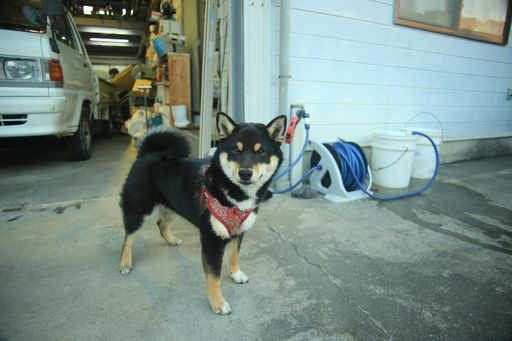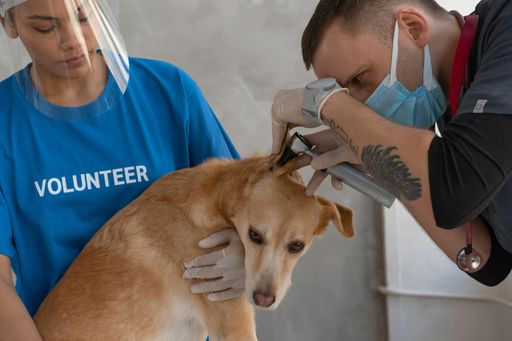A temporary loss of appetite in your dog is not something to become immediately concerned about. Just like us, dogs are sometimes not hungry or else some stress in their day has caused them to lose interest in food. However, a more prolonged loss of appetite in your dog is a serious sign that something is wrong. It’s unusual for a dog to refuse more than one or two meals and this can indicate anything from depression to disease. Sometimes a stressful situation or an upset stomach can be to blame, but these things are often resolved within a day. If more than 48 hours go by with your dog still refusing to eat, take them to the vet immediately.
Loss Of Appetite In Dogs Symptoms
Signs that your dog has lost its appetite may include the following:
- Eating less than usual
- Refusing to eat at all
- Not eating treats
- Trying to eat, but not being able to finish a meal
- Weight loss
- Lack of energy
- Vomiting
Sudden Loss Of Appetite In Dogs
Most importantly, you should take note of changes in your dog’s eating habits. It may be that your dog is not eating the recommended amount of food, but this is not a sign of loss of appetite if your dog is generally a light eater or is small for its age or breed. The main concern is when a dog who is often enthusiastic about its food loses interests in it. This sudden loss of appetite is an indicator that something is wrong. It may be something as simple as your dog has just received its vaccinations and is feeling a bit under the weather or it may be a sign that your dog is sick and needs medical attention. Monitor your dog’s behaviour over the next few hours or day and see if it gets its appetite back. If not, a trip to the vet is required.
Treat Loss Of Appetite In Dogs
If your dog is having difficulty eating, there are a few thing you can try at home to tempt them. You can try changing the food that you’re giving your dog in case there is something in it that your dog has decided it doesn’t like any more or that is causing an upset stomach. You can also try to warm the food a little or soften dried food by adding water to see if that makes it easier to eat and digest. Some dogs will respond to hand feeding when they’re feeling under the weather. After 24-48 hours, if none of these things have worked you should make a visit to your vet.
At the vet’s surgery, your dog may be given intravenous fluids with electrolytes, especially if it hasn’t had water for a day. Your vet may try syringe feeding and if several days have gone by without food, a feeding tube may be necessary. There are also appetite boosting drugs that can be used to try to encourage your dog to eat. The most important thing, however, is finding the cause of the loss of appetite and treating that immediately. This may be an infection that needs to be treated with antibiotics or symptomatic care or it may even be due to a dental problem that is causing your dog pain when it eats. Whatever the reason, the underlying cause for the loss of appetite in your dog needs to be addressed in order to solve the issue.
Dogs With Renal Failure Loss Of Appetite
Kidney failure in dogs can present with several gastrointestinal symptoms such as vomiting, diarrhea, constipation, increased thirst and a loss of appetite. This is because the kidneys are not filtering the toxins out of the system and they are causing damage to the digestive tract. This means that your dog may feel pain or nausea when eating and will blame the food, therefore refusing to eat any more as it causes such discomfort.
Changes in diet are often used to treat kidney disease and which changes are made depend on the stage and severity of the disease, so check with your vet before going ahead with altering the food you give your dog. Generally, the food needs to be low in protein, phosphorus, sodium and calcium, but contain a good amount of fatty acids and Omega 3. The can result in the food you offer your dog being rather bland and boring and your dog may refuse to eat it. This lack of interest in food is not necessarily due to a loss of appetite, but more that your dog is holding out in the hope of something more tasty.
Lethargy And Loss Of Appetite In Dogs
The most common cause of lethargy and loss of appetite in dogs is infection or disease. Many of the viral infections such as distemper and parvovirus present with lethargy and loss of appetite. It’s also an indicator of liver disease and heart problems. Lethargy may be caused by the lack of appetite, as if your dog is not eating then it is not getting any energy. However, many infections also cause lethargy as energy is being diverted to the immune response to fight off the infection. Either way, seeing these two symptoms together is something to keep an eye on. To keep an eye on recovery and to monitor lethargy, you can use an activity tracker, like the FitBark to monitor how active they are throughout the day.



















